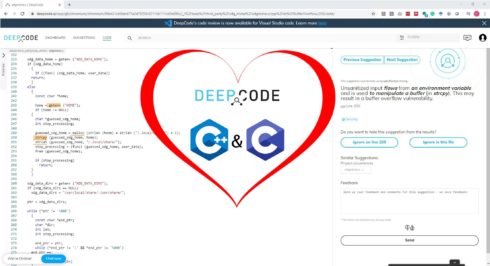
DeepCode, the platform for AI-powered code reviews, has announced support for C/C++.
“C and C++ are dominant in the realm of software that is close to the hardware, such as operating systems or software with high performance or even real-time aspects,” the DeepCode AI team wrote in a post. Additionally, DeepCode engineer Jan Eberhardt stated: “We consider C++ to be a peculiar corner case of an imperative language with all its low-level features like memory management, references, pointers, etc. For any other ‘regular’ imperative programming language, we would not have to change anything in our points-to and type-state analysis. For any other language, we expect an implementation time of about one month.”
Additional details are available here.
HCL Unica version 12 re;eased
HCL Unica 12 adds over 200 enhancements, 25 new features, over 90 native reports, over 500 REST APIs and a new UI/UX.
It also adds an improved experience that manage offers and content across all channels with Centralized Offer Manager and enables users to get performance insights in real-time.
Additional details are available here.
Microsoft extends Windows ML and DirectML
Microsoft announced that it is bringing Windows ML and DirectML to more places.
“A common piece of feedback we’ve heard is that developers today want the ability to ship products and applications that have feature parity to all of their customers,” Microsoft wrote in a post. “To support this, we are going to make Windows ML available as a stand-alone package that can be shipped with your application.”
Going forward, with each new update of Windows ML, there will be a corresponding redist package, with matching new features and optimizations, available on GitHub.
Google ending support for JSON-RPC and Global HTTP Batch endpoints
Google announced that it is ending support for JSON-RPC and Global HTTP Batch Endpoints as the company said it is focusing on more distributed, high-performance architectures where requests go directly to the appropriate API server.
“We have invested heavily in our API and service infrastructure to improve performance and security and to add features developers need to build world-class APIs,” Google wrote in a blog post.






